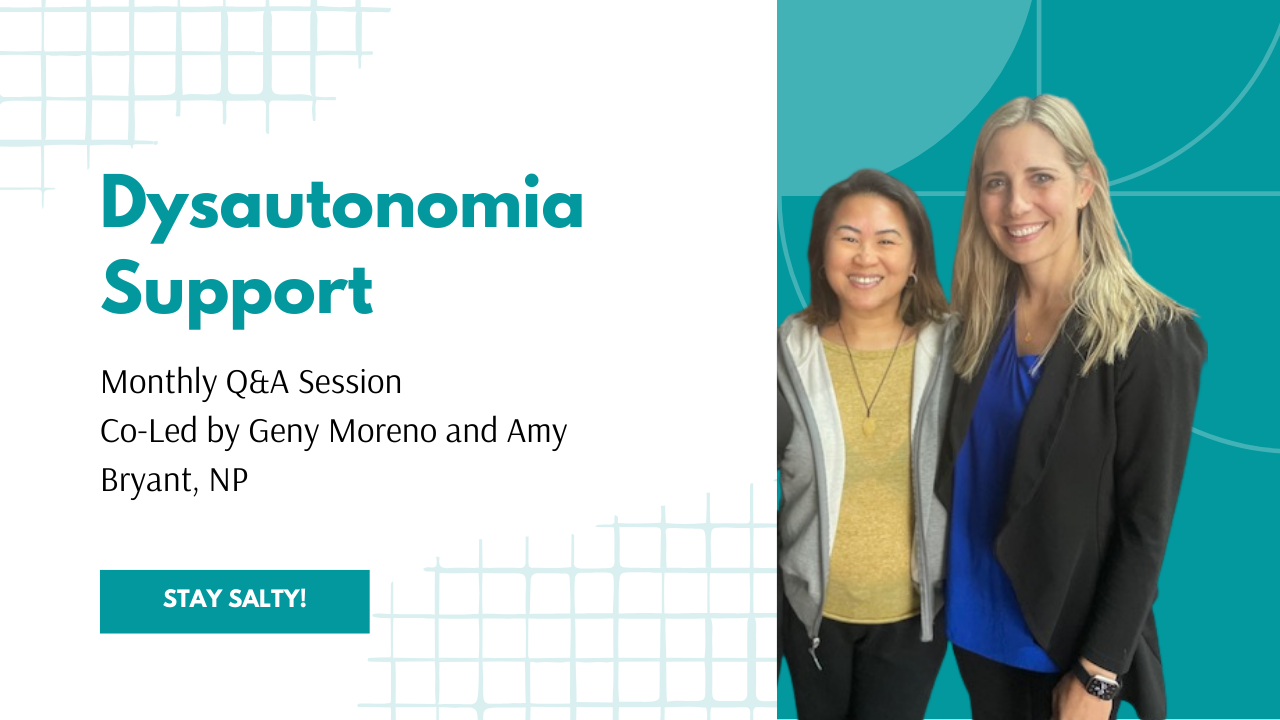Communication Tips for Dysautonomia: Advocating for Yourself

At the Texas Center for Lifestyle Medicine, we understand how challenging it can be to communicate your unique health needs clearly, especially when dealing with conditions like Dysautonomia. This condition, often misunderstood or mistaken for anxiety, requires specific strategies to ensure medical teams can provide the best care.
In our Monthly Dysautonomia Q&A Sessions led by Geny Moreno and Amy Bryant, NP attendees can share tips, ask questions, and together, navigate the complex journey of Dysautonomia.
In our last session, Amy Bryant and Geny Moreno share valuable insights on how to effectively communicate with your healthcare providers about Dysautonomia, focusing on verbiage and self advocacy.
Understanding Dysautonomia
Dysautonomia is an umbrella term used to describe a range of conditions that affect the autonomic nervous system, causing symptoms that can seem similar to anxiety. However, it's crucial to distinguish Dysautonomia from anxiety in medical settings to ensure you receive appropriate care.
Communicating with Healthcare Providers
-
Use Clear Terminology: When discussing your condition with procedural staff or doctors, frame your conversation around "autonomic dysfunction." This terminology can help medical professionals understand that your symptoms are rooted in nervous system issues rather than psychological ones.
-
Emphasize Symptom Management: It's important to highlight the need for monitoring vital signs such as blood pressure and heart rate. Inform your healthcare team that your condition may cause these indicators to fluctuate significantly even with minimal triggers.
-
Prepare for Treatment Needs: Advise medical staff to have fluids and medications readily available to manage potential Dysautonomia-related complications. This preparation ensures they can respond swiftly to any changes in your condition.
Key Tips
- Be Proactive: Before any medical procedure, reach out to your healthcare provider to discuss your needs. This can alleviate concerns and ensure they are prepared for your visit.
- Education: Provide your medical team with educational materials or suggest resources where they can learn more about Dysautonomia. It helps to build understanding and improve the level of care you receive.
- Advocate for Yourself: Remember, you know your body better than anyone else. Don't hesitate to insist on specific procedures or treatments that you know are necessary for managing your condition.
By using these strategies, patients with Dysautonomia can advocate for their health more effectively and ensure better care outcomes. Should you seek more personalized guidance or have questions about managing Dysautonomia, feel free to contact the Texas Center for Lifestyle Medicine for support or to schedule your next visit!
